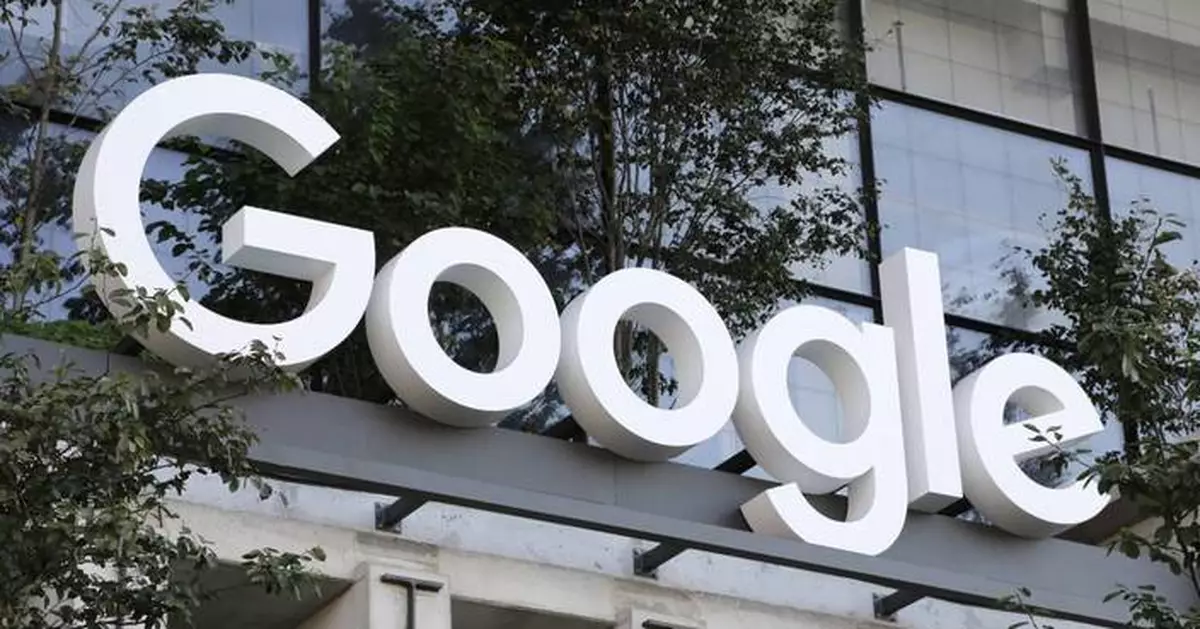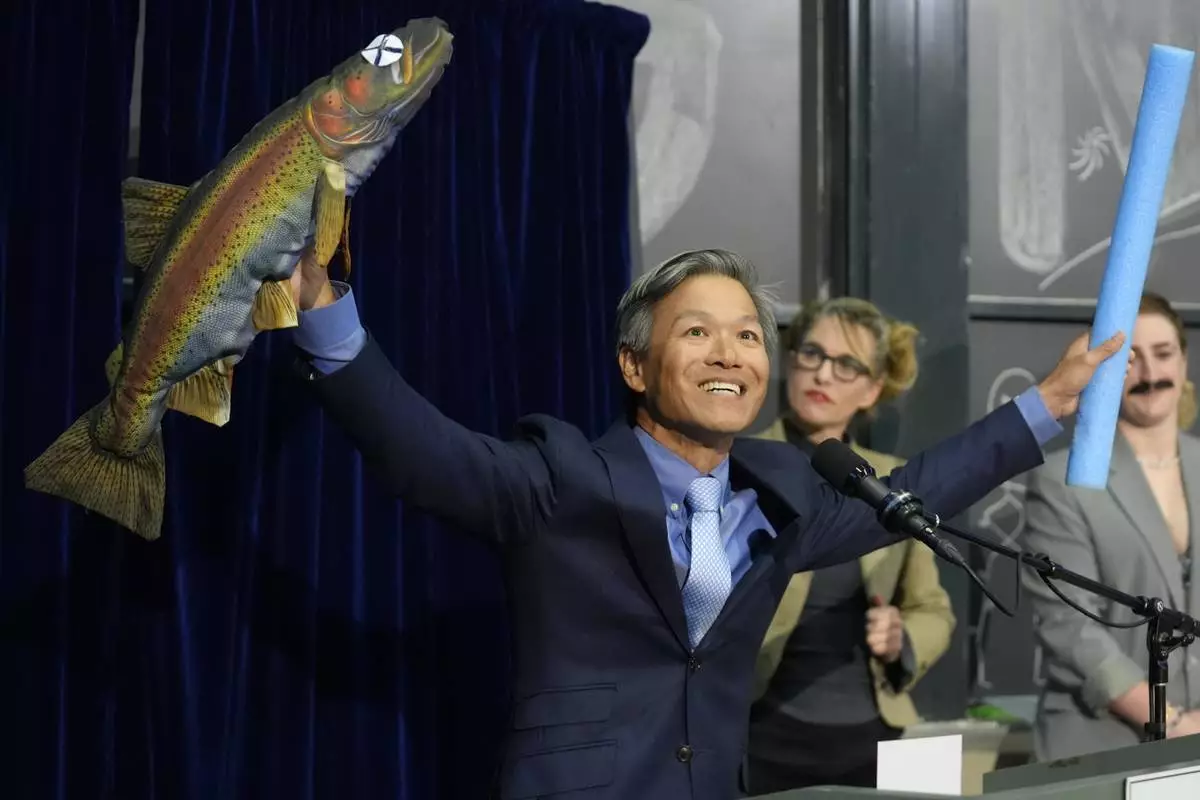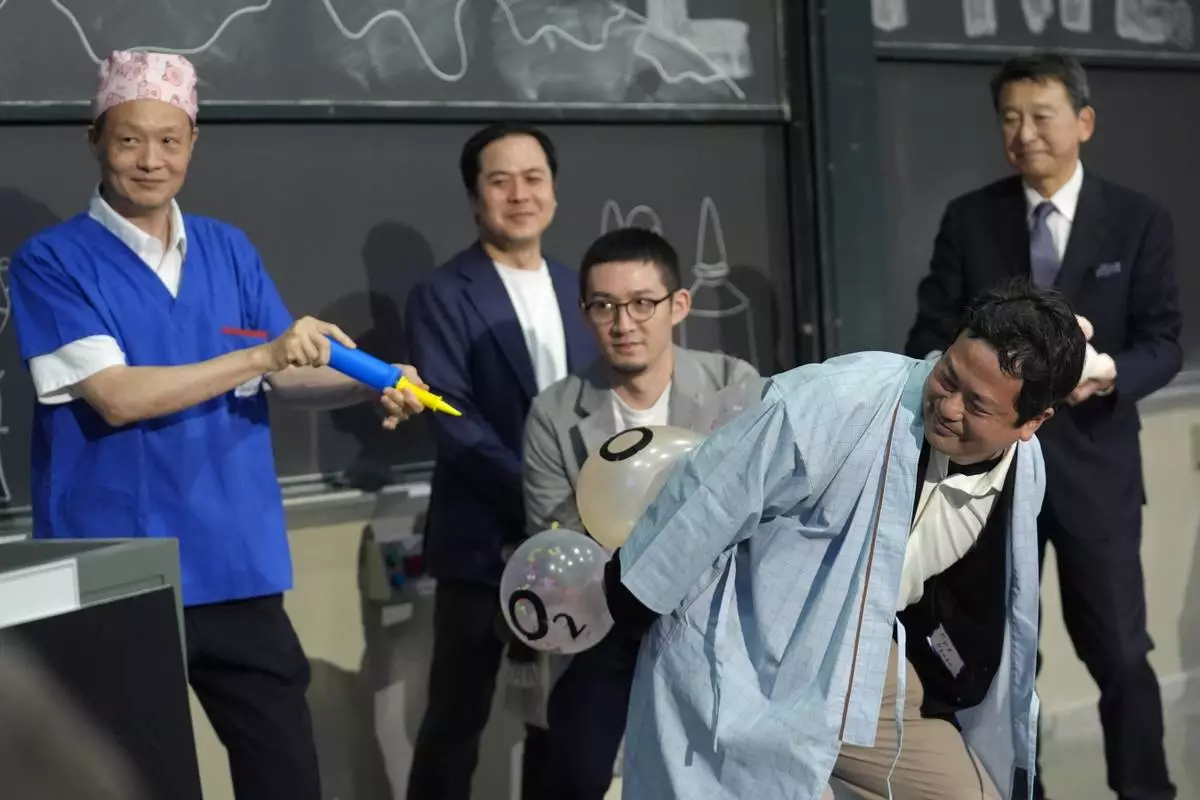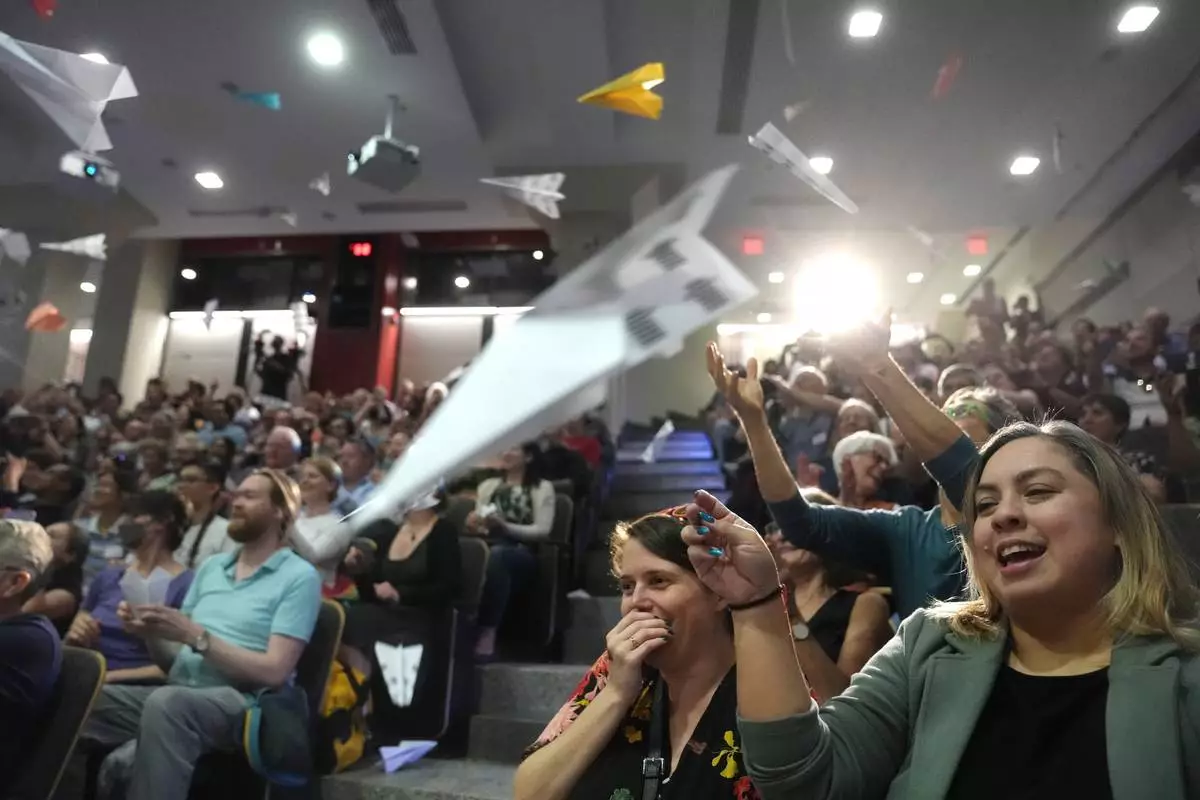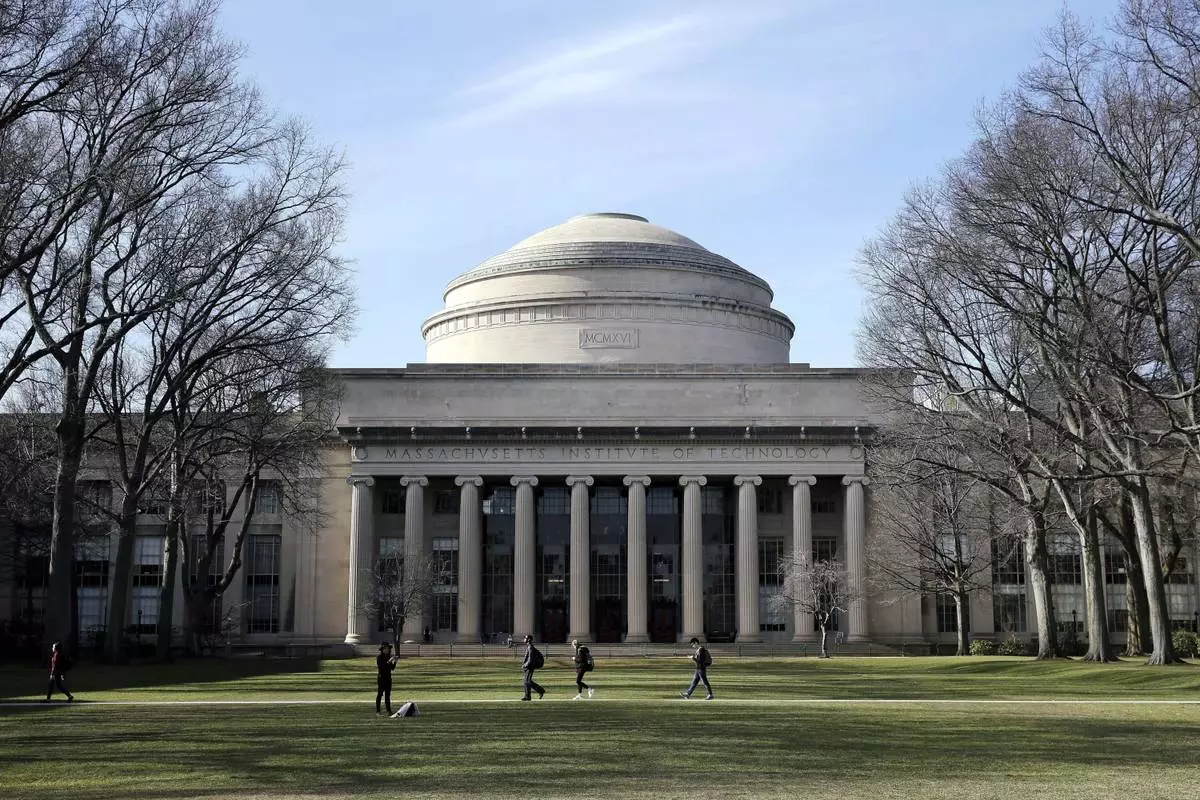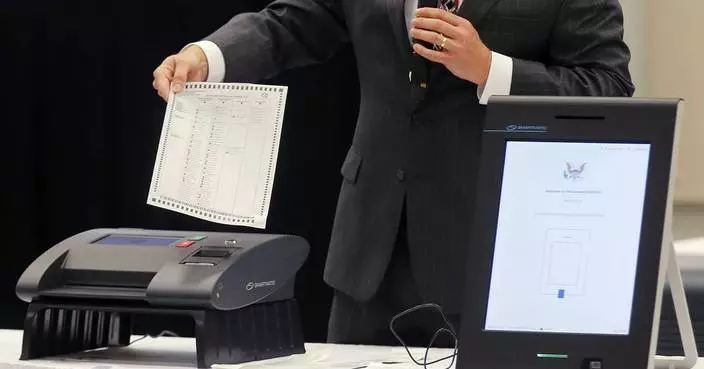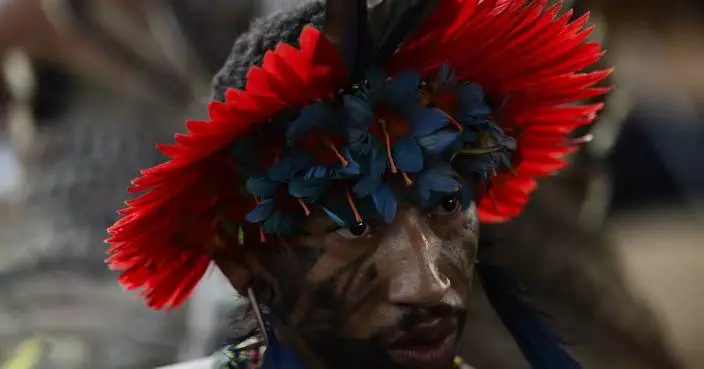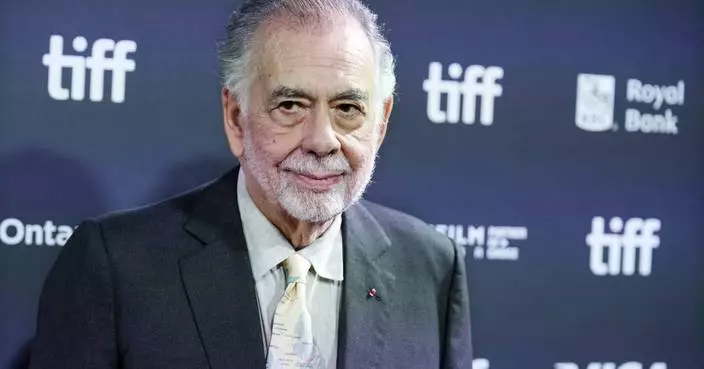SACRAMENTO, Calif. (AP) — Google will soon give California millions of dollars to help pay for local journalism jobs in a first-in-the-nation deal, but journalists and other media industry experts are calling it a disappointing agreement that mostly benefits the tech giant.
The agreement, which was hashed out behind closed doors and announced this week, will direct tens of millions of public and private dollars to keep local news organizations afloat. Critics say it's a textbook political maneuver by tech giants to avoid a fee under what could have been groundbreaking legislation. California lawmakers agreed to kill a bill requiring tech to support news outlets they profit from in exchange for Google's financial commitment.
By shelving the bill, the state effectively gave up on an avenue that could have required Google and social media platforms to make ongoing payments to publishers for linking news content, said Victor Pickard, professor of media policy and political economy at the University of Pennsylvania. California also left behind a much bigger amount of funding that could have been secured under the legislation, he said.
“Google got off easy,” Pickard said.
Google said the deal will help both journalism and the artificial intelligence sector in California.
“This public-private partnership builds on our long history of working with journalism and the local news ecosystem in our home state, while developing a national center of excellence on AI policy,” Kent Walker, president of global affairs and chief legal officer for Google’s parent company Alphabet, said in a statement.
State governments across the U.S. have been working to help boost struggling news organizations. The U.S. newspaper industry has been in a long decline, with traditional business models collapsing and advertising revenues drying up in the digital era.
As news organizations move from primarily print to mostly digital, they have increasingly relied on Google and Facebook to distribute its content. While publishers saw their advertising revenues nosedive significantly in the last few decades, Google’s search engine has become the hub of a digital advertisement empire that generates more than $200 billion annually.
The Los Angeles Times was losing up to $40 million a year, the newspaper's owner said in justifying a layoff of more than 100 people earlier this year.
More than 2,500 newspapers have closed since 2005, and about 200 counties across the U.S. do not have any local news outlets, according to a report from Northwestern University’s Medill School of Journalism.
California and New Mexico are funding local news fellowship programs. New York this year became the first state to offer a tax credit program for news outlets to hire and retain journalists. Illinois is considering a bill similar to the one that died in California.
Here's a closer look into the deal California made with Google this week:
The deal, totaling $250 million, will provide money to two efforts: funding for journalism initiatives and a new AI research program. The agreement only guarantees funding for a period of five years.
Roughly $110 million will come from Google and $70 million from the state budget to boost journalism jobs. The fund will be managed by UC Berkeley’s Graduate School of Journalism. Google will also kick in $70 million to fund the AI research program, which would build tools to help solve “real world problems,” said Assemblymember Buffy Wicks, who brokered the deal.
The deal is not a tax, which is a stark departure from a bill Wicks authored that would have imposed a “link tax” requiring companies like Google, Facebook and Microsoft to pay a certain percentage of advertising revenue to media companies for linking to their content. The bill was modelled after a policy passed in Canada that requires Google to pay roughly $74 million per year to fund journalism.
Tech companies spent the last two years fighting Wicks' bill, launching expensive opposition campaigns and running ads attacking the legislation. Google threatened in April to temporarily block news websites from some California users' search results. The bill had continued to advance with bipartisan support — until this week.
Wicks told The Associated Press on Thursday that she saw no path forward for her bill and that the funding secured through the deal “is better than zero.”
“This represents politics is the art of the possible,” she said.
Industry experts see the deal as a playbook move Google has used across the world to avoid regulations.
“Google cannot exit from news because they need it,” said Anya Schiffrin, a Columbia University professor who studies global media and co-authors a working paper on how much Google and Meta owes to news publishers. “So what they are doing is using a whole lot of different tactics to kill bills that will require them to compensate publishers fairly.”
She estimates that Google owes $1.4 billion per year to California publishers. Google disagrees with Schiffrin’s findings. A spokesperson said news queries account for under 2% of all searches and that Google doesn’t make money on them.
The Media Guild of the West, a union representing journalists in Southern California, Arizona and Texas, said journalists were locked out of the conversation. The union was a champion of Wicks' bill but wasn't included in the negotiations with Google.
“The future of journalism should not be decided in backroom deals,” a letter by the union sent to lawmakers reads. “The Legislature embarked on an effort to regulate monopolies and failed terribly. Now we question whether the state has done more harm than good.”
The agreement results in a much smaller amount of funding compared to what Google gives to newsrooms in Canada and goes against the goal to rebalance Google’s dominance over local news organizations, according to a letter from the union to Wicks earlier this week.
Others also questioned why the deal included funding to build new AI tools. They see it as another way for tech companies to eventual replace them. Wicks' original bill doesn't include AI provisions.
The deal has the support of some journalism groups, including California News Publishers Association, Local Independent Online News Publishers and California Black Media.
The agreement is scheduled to take effect next year, starting with $100 million to kickstart the efforts.
Wicks said details of the agreement are still being ironed out. California Gov. Gavin Newsom has promised to include the journalism funding in his January budget, Wicks said, but concerns from other Democratic leaders could throw a wrench in the plan.
This story has been updated to correct that, as well as Southern California and Texas, the Media Guild of the West represents journalists in Arizona, not Nevada.
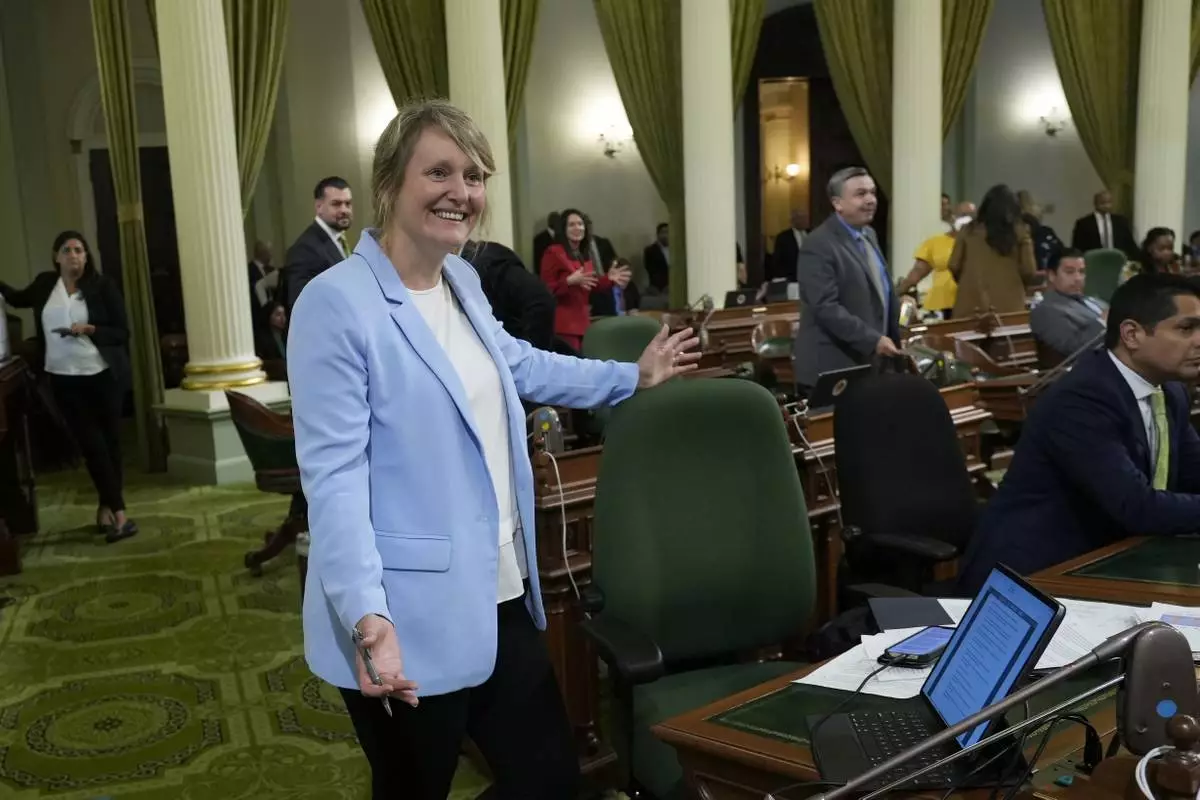
FILE - Assemblywoman Buffy Wicks, D-Oakland, smiles after measure that would force Big Tech companies to pay media outlets for using their news content was approved by the Assembly at the Capitol in Sacramento, Calif., June 1, 2023. (AP Photo/Rich Pedroncelli, File)
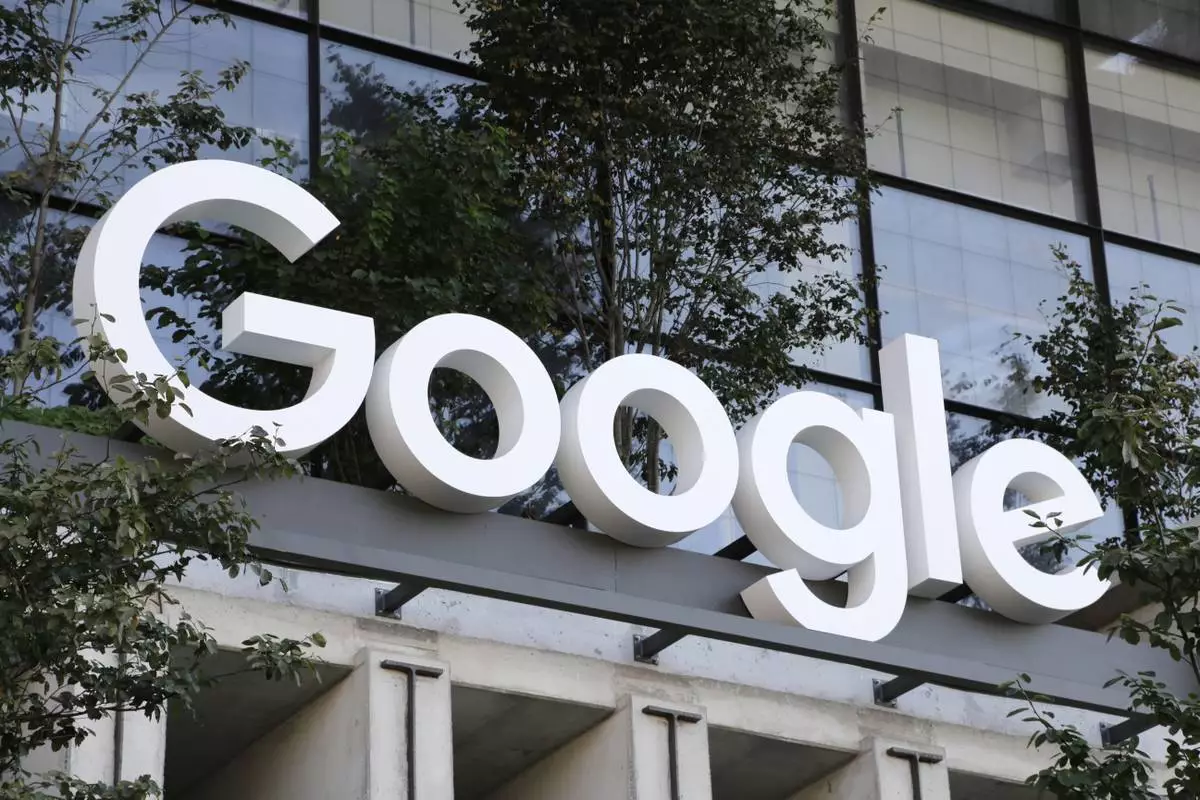
FILE - A Google sign hangs over an entrance to the company's new building, Sept. 6, 2023, in New York. (AP Photo/Peter Morgan, File)


